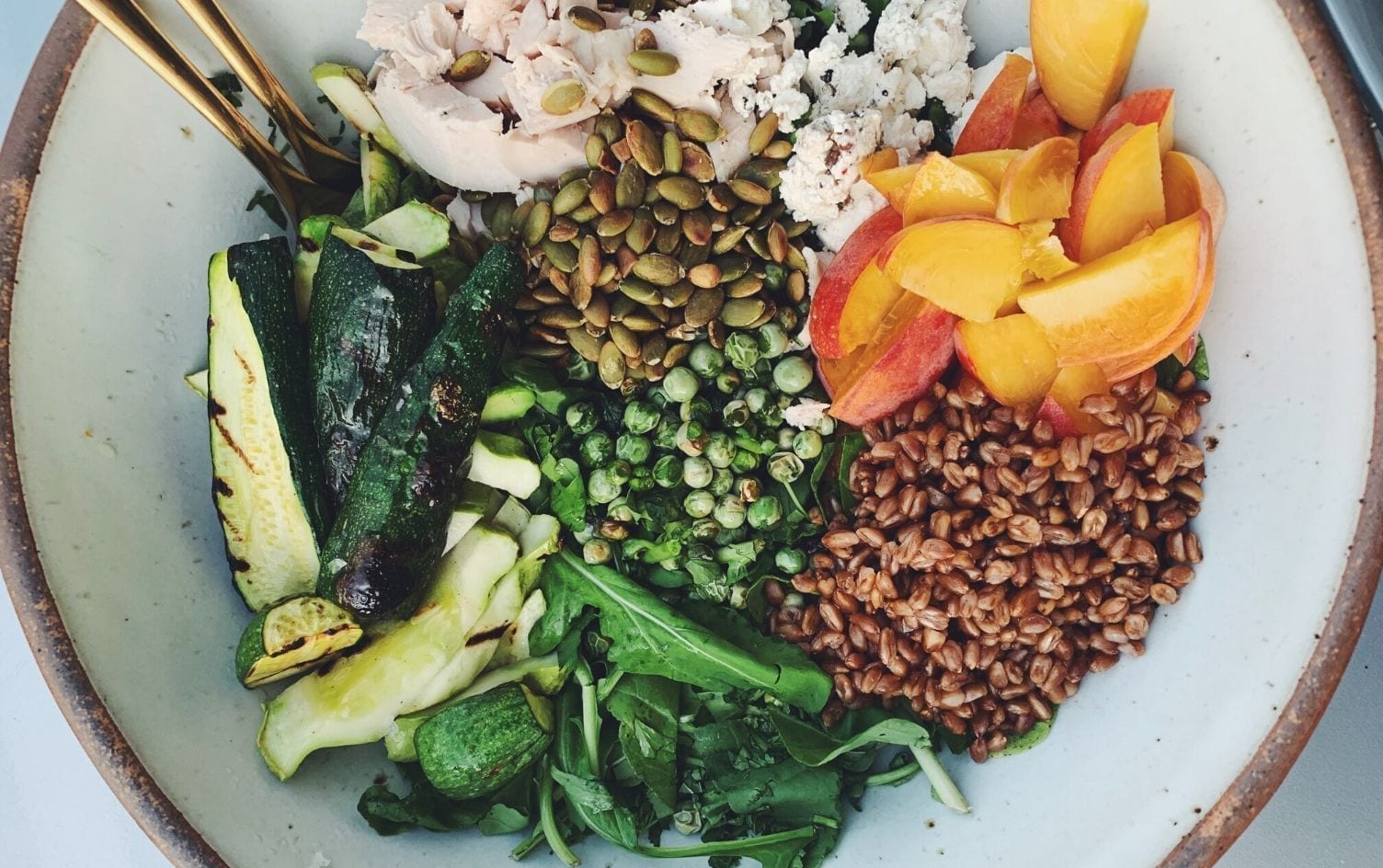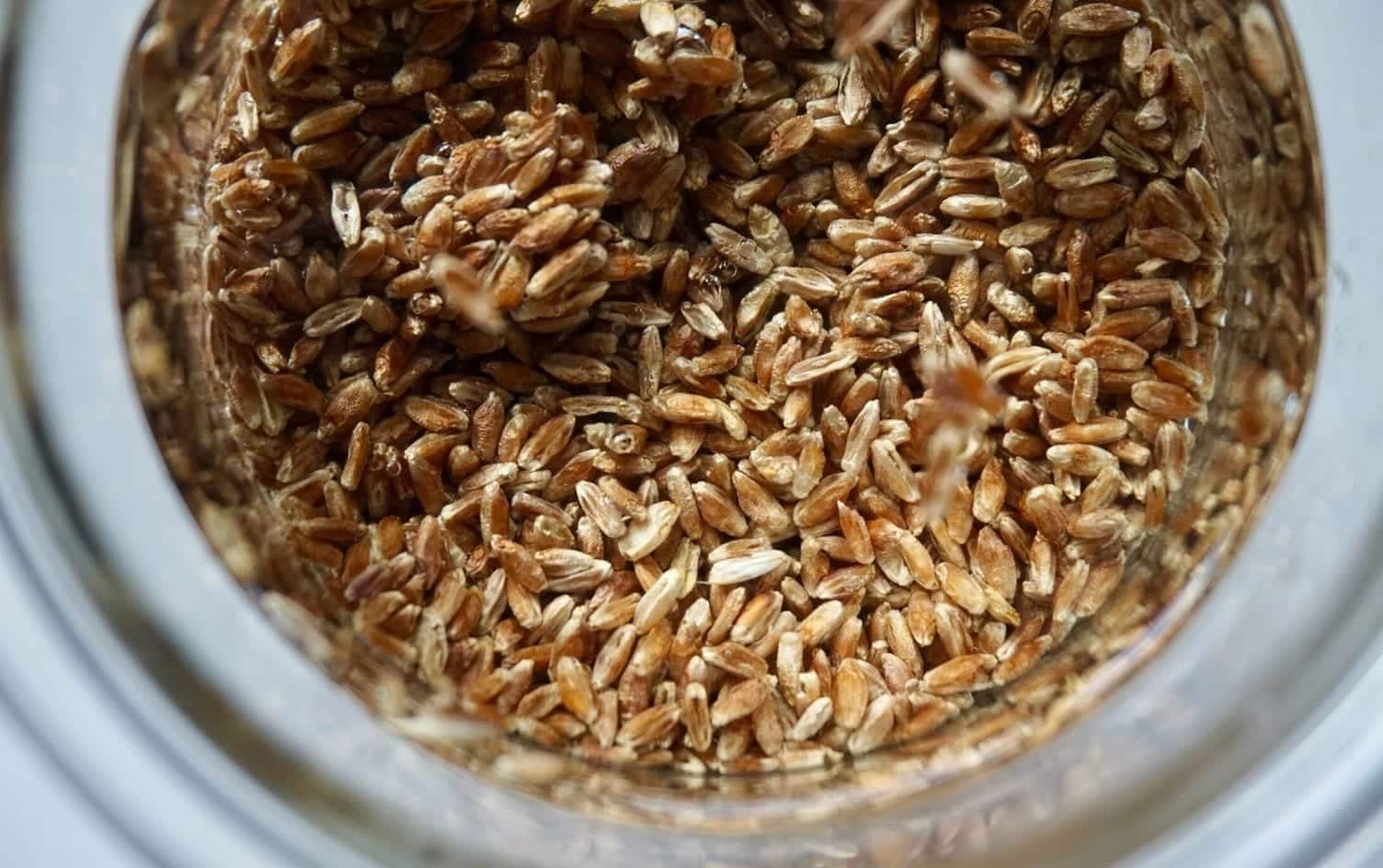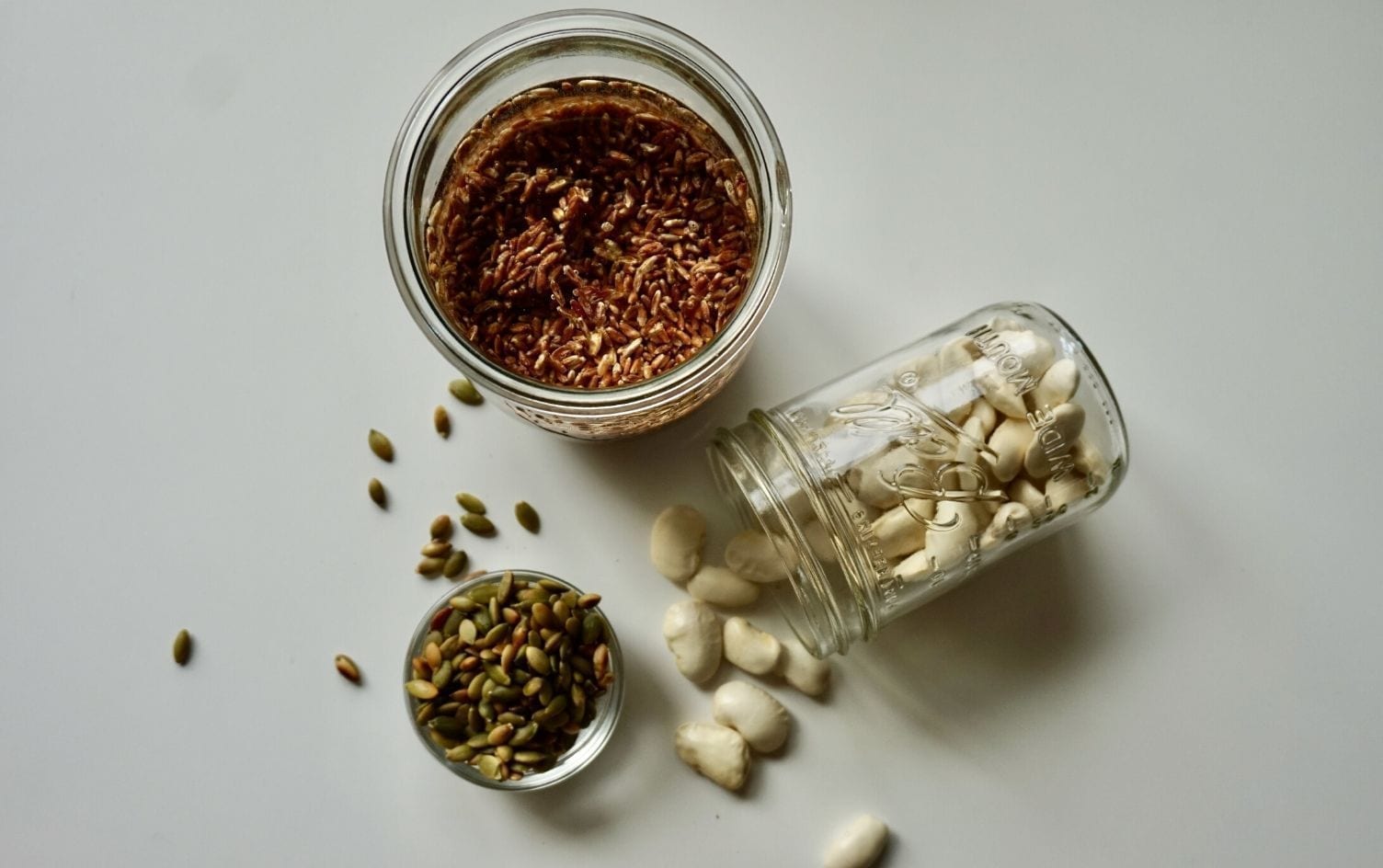I had always figured that when a recipe for cooking dried beans read “soak overnight in salted water” it was a hack on time, not a vital way of cooking an ingredient that would save my health.
Whenever I saw “sprouted” on the labels of almonds, pepitas or sunflower seeds in the bulk section, I figured it was a hippy ploy to take my money. I didn’t understand what sprouting meant or what it really did. Then, my body started screaming for me to pay attention.
Diagnosed with a severe nutrient deficiency, my doctor suggested the problem wasn’t my diet; I was eating well, consuming plenty of leafy greens, lean proteins, lots of beans, whole-grains and healthy snacks like almonds and drinking plenty of water. Instead, the issue was my body wasn’t absorbing the powerful and potent foods I was eating. What would prevent my body and specifically my digestive system from doing its job of processing and importing the nutrients from my foods?

THE CASE FOR SOAKING YOUR GRAINS AND BEANS
The truth is nature is smart. Organic, whole foods aren’t just ingredients, they’re organisms that are alive and have life goals of their own. For seeds, nuts, grains and legumes, their life mission is to find a nice plot of earth to settle into, to get watered a little bit and allow the powerful intelligence and vital nutrients they carry to turn into a whole new healthy plant. Their goal is to sprout new life!
And, they’re so smart and determined to achieve that goal that their potential remains dormant until they find themselves in optimal “sprouting” conditions. Until then, they coat themselves in a natural toxin called phytic acid that prevents any predator (um, that’s us) to stop them along their journey to greatness. When we consume phytic acid, we have a difficult time digesting our food, and the acid literally blocks our absorption of minerals like zinc, magnesium, iron and calcium, and it inhibits enzyme function (If you’ve ever farted up a storm after eating at a sketchy Mexican restaurant, phytic acid in the beans and rice may be to blame.) Soaking grains can help counteract negative effects associated with gluten consumption as well.
Fortunately for us, if we soak these life-sprouting ingredients (literally, re-create the environment they need to shed their phytic acid and release their life-giving nutrients for absorption) we are able to neutralize the phytic acid, enjoy complete digestion of these ingredients and reap their benefits. And, they get to win too, because they give us energy and vibrancy and we find them to be tasty so we plant new plants and help them to grow and all of our goals are achieved.
WHY SPROUTING IS GOOD
Nuts, seeds, legumes and grains are difficult to digest, and almost impossible to reap nutritional benefit from if they aren’t sprouted first. Cooking these ingredients and eating them regularly, without sprouting, contributed to the nutritional challenges my doctor helped me discover. Learning to sprout these ingredients was a complete life changer for my predominantly plant-based diet, and I’m sure it will be for others, too.
At first, it felt like a chore — just another thing to do at night before bed or before I left the house in the morning. But once I got the hang of it, it was easy. As soon as I thought of what I wanted to have for dinner, I would pop grains or beans into a jar, cover with water and add a pinch of salt and a little bit of cider vinegar (the vinegar also helps to breakdown phytic acid.) Then, I would pop it into the fridge until I was ready to use.

Here’s what you do:
SOAKING GRAINS
Whole grains must be soaked for 12–24 hours before cooking to remove their phytic acid. The soaking process gives the grains life, activates their nutrients, makes them more digestible and reduces cooking time. It also improves their texture and flavor.
- Place grains in a quart-sized jar or a 2-quart pot.
- Cover with twice as much water as grain.
- Allow to sit either on the countertop or in the fridge for 12–24 hours. (If your cooking plans change, be sure to strain off the water and rinse the grains, then cover again with water and store in the fridge until ready to use.
- Strain and rinse your grains completely, then cook according to the type of grain using the correct amount of water required!
SOAKING BEANS
Beans don’t need quite as long to soak — just about 12 hours. But doing so helps activate, enliven and make available all of the beautiful nutrients these ingredients contain. And, it will help immensely with digestibility. (The gas-causing enzymes typically related to ethnic foods are actually just related to not soaking the beans. These enzymes are released into the soaking water.)
- Place beans in a quart-sized jar or a 1.5–2 quart pot.
- Cover with twice as much water as beans.
- Allow to sit either on the countertop or in the fridge for about 12 hours. (If your cooking plans change, be sure to strain off the water and rinse the beans, then cover again with water and store in the fridge until ready to use.
- Strain and rinse your beans completely, then cook according to the type of bean using the correct amount of water required!
SOAKING RAW NUTS
Nuts don’t need nearly as long to soak as grains or beans — just 2–6 hours. If soaked for longer than 8 hours, they often become slimy and lose their flavor. Soaked nuts can be dehydrated in the oven at a low temperature (180°F/82ºC) overnight to make toasted nuts perfect for making your own nut butter or snacking. Strained nuts can be used in nut milks, creamy non-dairy desserts and more.
- Place nuts in a quart-sized jar.
- Cover with 2–3 inches of water, and add a pinch of salt.
- Allow to sit either on the countertop or in the fridge for 2–6 hours.
- Strain and rinse your nuts.
- If dehydrating, turn your oven on to 180°F/82ºC and spread nuts on a baking sheet in an even layer. Allow to bake overnight until dry and toasted completely.
- To use immediately, blend rinsed nuts into desserts, nut milks and more.




